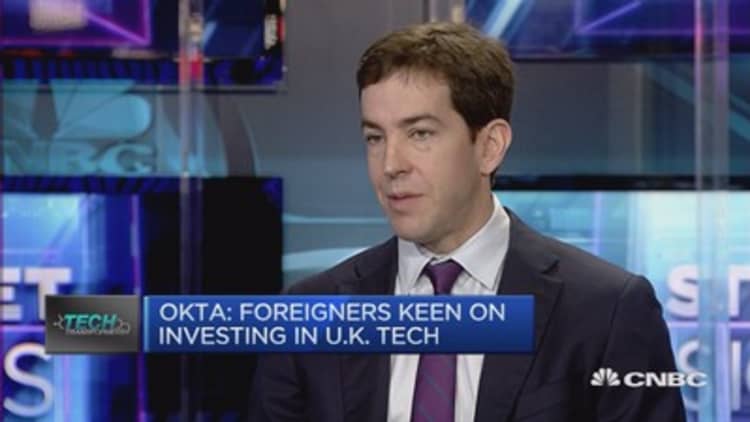Enterprise software company Okta has filed to go public.
The company, which offers online services that help companies' employees sign in to different cloud apps with a single password, hopes to raise $100 million in the offering.
Like most recent tech IPOs, Okta is losing money. In the nine months ended Oct. 31, 2016, Okta lost $65 million, a slight increase from the comparable 2015 period's losses of $55 million. But its revenue nearly doubled between the 2015 and 2016 nine-month periods, growing from $59 million to $112 million. (Okta reported its revenues this way because its fiscal year ends on Jan. 31 and it has not yet reported its quarterly results for the quarter ended Jan. 31, 2017.)
Okta has raised more than $228 milion from some of Silicon Valley's highest-profile VCs, according to Crunchbase, including Andreessen Horowitz, which led its first two rounds, plus Sequoia and Greylock. It was reportedly valued at $1.1 billion when it last raised in September 2015, making it one of the fabled crop of billion-dollar "unicorns" before the VC market turned cooler in 2016.

According to the filing, Sequoia currently owns 21.2% of the company, Andreessen Horowitz 19.6%, and Greylock 16.9%. Okta cofounder and CEO Todd McKinnon owns 10.3%, and his cofounder Frederic Kerrest has 6.2%.
The filing suggests that the IPO window remains open for relatively small but fast-growing enterprise software companies, following on the heels of Snap's successful IPO last month. This week, MuleSoft is expected to go public, and several other enterprise companies, including Cloudera and ForeScout, have reportedly filed confidentially with the SEC.
Correction: The most recent revenue and net loss figures in Okta's S1 filing apply to the nine months ended Oct 31, 2016, and the year-ago period.


